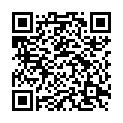|
|
|
| Module code: E2513 |
|
|
5P (5 hours per week) |
|
6 |
| Semester: 5 |
| Mandatory course: yes |
Language of instruction:
German |
Assessment:
Oral examination, practical test with term paper (lab, no grade)
[updated 08.01.2020]
|
E2513 (P211-0121, P211-0122) Electrical Engineering and Information Technology, Bachelor, ASPO 01.10.2018
, semester 5, mandatory course, technical
|
75 class hours (= 56.25 clock hours) over a 15-week period.
The total student study time is 180 hours (equivalent to 6 ECTS credits).
There are therefore 123.75 hours available for class preparation and follow-up work and exam preparation.
|
Recommended prerequisites (modules):
None.
|
Recommended as prerequisite for:
|
Module coordinator:
Prof. Dr. Horst Wieker |
Lecturer: Prof. Dr. Horst Wieker
[updated 10.09.2018]
|
Learning outcomes:
After successfully completing this course, students will be able to analyze and independently solve practical tasks in telecommunication-specific fields of work. (Technical competence: 4 ECTS, Methodological competence: 1 ECTS) They will be able to carry out the tasks in a team (including preparation, execution and documentation of lab work, using modern measuring methods and instruments) and prepare technical documentation. (Social competence: 1 ECTS)
[updated 08.01.2020]
|
Module content:
The given content represents the basic tasks in the practical exercises. This involves solving and documenting both simple, individual tasks and complex, cross-content tasks. 1. Protocol analysis of TDM telecommunication systems 2. Planning and designing IP networks (logical structure, switching, routing) 3. Traffic engineering and performance monitoring by means of management systems 4. Protocol analysis of mobile radio systems 5. Structure of a VoIP system 6. IP security
[updated 08.01.2020]
|
Teaching methods/Media:
Beamer, blackboard, practical work on real network elements and networks.
[updated 08.01.2020]
|
Recommended or required reading:
Badach, Anatol: Voice over IP - die technik, Hanser, 2007, 3. Aufl. Badach, Anatol; Hoffman, Erwin: Technik der IP-Netze, Hanser, München, (latest edition) Chapell, Laura A.: Wireshark 101, mitp, 2013 Siegmund, Gerd: Technik der Netze, Hüthig
[updated 08.01.2020]
|


